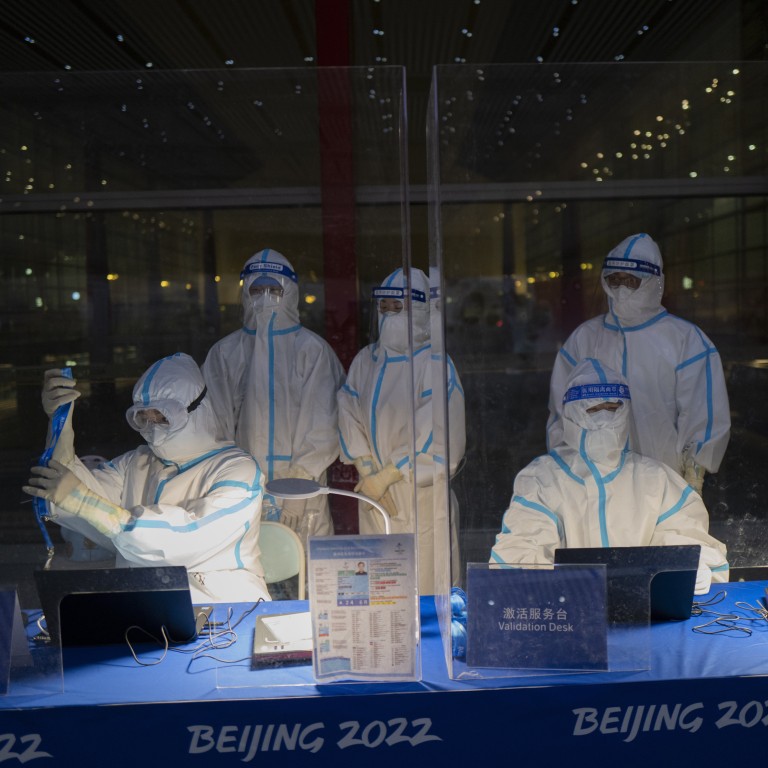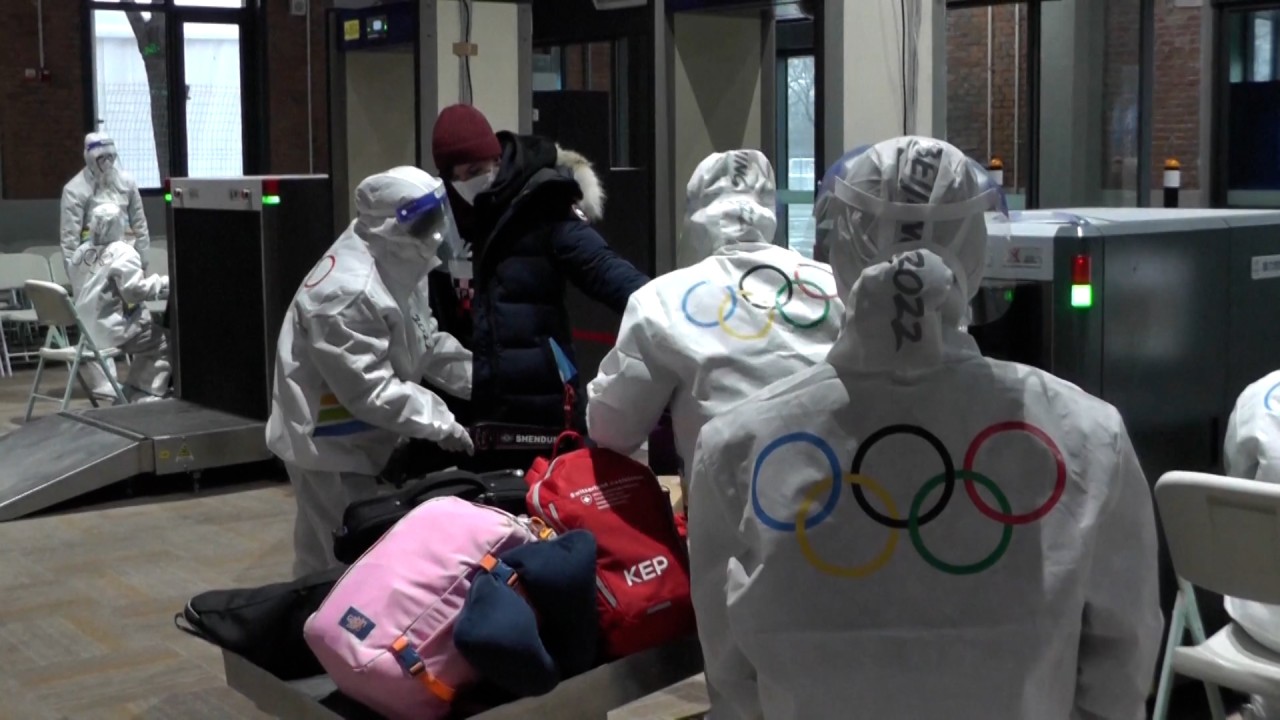
Beijing Olympics Covid-19 cases rise to 78 as medical panel aims for balanced approach
- A Winter Games team member and five stakeholders tested positive for the virus and are in isolation until they return two negative tests
- Head of medical expert panel Brian McCloskey says a number of factors will be considered when deciding someone is no longer a risk
It is not known if the team member is an athlete or official, but the cases were picked up on Sunday during testing of 529 Olympic-related arrivals at Beijing Capital International Airport. The arrivals included 153 athletes and team officials, along with 376 other stakeholders – a category that includes the media and Games partners.
‘Zero Beijing Olympics cases impossible’ as 72 positive Covid-19 tests reported
At a technical briefing on Sunday, officials from the International Olympic Committee said those who tested positive had been isolated and their close contacts identified, in accordance with the Beijing 2022 Olympics playbook.
Participants in the Games are already in a “closed loop” on arrival in Beijing, to minimise the risk of spreading Covid-19 in a city that is already battling to contain outbreaks of the Omicron and Delta variants.
According to the playbook, which gives a blueprint for how to manage Covid-19 during the Games, positive cases will be able to take part once they have returned two negative tests.
Whether participants who test positive can be released back to the Games largely depends on the results of their polymerase chain reaction (PCR) tests. These detect the genetic fingerprints of the virus, including the fragments that will not infect others.
Dr Brian McCloskey, chairman of the Beijing 2022 Medical Expert Panel, said on Sunday the panel would not be relying on single PCR test results when making its decisions, but would take account of several factors as part of a balanced approach.
“You can either set the bar very low to make sure that nobody is through the system who might be infectious – or you set the bar higher to try and make sure nobody gets excluded from the Games because of a false positive test. And we have to try and find a balance within that,” he said.
“The medical expert panel will look at not just a single PCR result, but hopefully a series [to] look at whether the CT value is changing – is it going up or coming down? What’s the person’s history? Have they been vaccinated fully? – to make a judgment,” McCloskey said, referring to a measure of viral load in a PCR test.
“We will make a judgment based on our view about whether this person is continuing to pose a risk to other people or not.”
All Games participants need to take daily tests and isolate if they test positive for Covid-19. It is a replication of China’s “dynamic zero-Covid” policy which seeks to terminate every chain of transmission through rigorous contact tracing and frequent testing.
Anyone who tests positive but is asymptomatic will be taken to an isolation facility within the “closed loop” where they will remain until they have returned two negative PCR tests within 24 hours. This is slightly different from Beijing residents in the same situation, who must isolate in a hospital.
Close contacts – who would have to quarantine for 21 days in Beijing if they were outside the Olympics loop – can continue to take part if they test negative. But they must self-isolate in a single room and dine alone, while having frequent tests for 14 days.
Olympics participants who have a positive result and Covid-19 symptoms will be sent for hospital treatment and released once they no longer have symptoms and have returned two negative tests.


